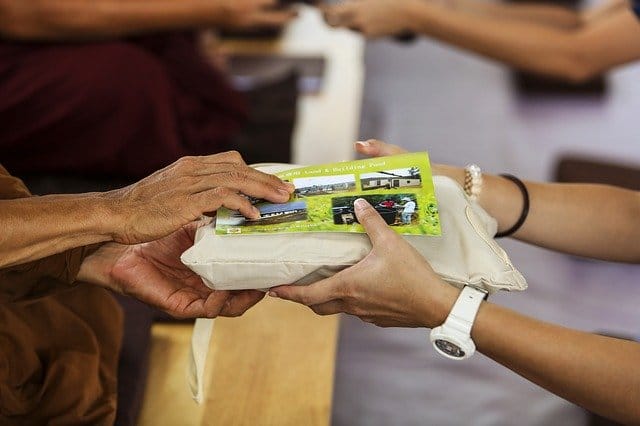Generous people live longer. The act of sharing empowers social connections. The recipient directly gets benefits from the donation by meeting an urgent need, while the donor receives mental satisfaction.
Resource sharing increases longevity. The recipient directly gets benefits from the donation by meeting an urgent need, while the donor receives mental satisfaction. The act of sharing empowers social connections, which directly benefits human health and well-being, and indirectly raises survival—finds a new study published in the journal PNAS (Vogt et al., 2020).
The Study
A group of international scientists from The Netherlands, Germany, and California used data from 34 countries on six continents and found that the average length of life of its citizens has a strong linear relationship with the transfer of wealth at public and private levels in the respective societies.
The scientists collected data from The National Transfer Accounts (NTA) project, which estimates public and private transfers by age at the national and private levels in many countries around the globe. They restricted their analysis to the countries for which the estimates were validated and thoroughly quality checked.
They also used the data from the United Nations’ (UN’s) world population prospects revision 2017 (52). By using NTA and UN data, the scientists conducted the statistical analysis. They found a strong log-linear association between levels of mortality and the generosity of transfer support across the life course.
“What is new about our study is that for the first time, we have combined transfer payments from state and family and evaluated the effect,” says Fanny Kluge from Max Planck Institute for Demographic Research, 18057 Rostock, Germany.
Outcome: People Share Less Die Early
The people who share the less die early. Of the countries studied, scientists found people in Senegal share the lowest percentage of their lifetime income and have the highest mortality rate.
Although South Africa is economically more developed than Senegal, few resources are redistributed, and the mortality rate is relatively high. In these countries, younger people under 20y of age also have higher mortality rates.
“Our analyses suggest that redistribution influences the mortality rate of a country, regardless of the per capita gross domestic product,” says Fanny Kluge.
On the other hand, people in Western European countries and Japan transfer a lot to younger and older people, and mortality rates are low. Among the studied countries, France and Japan have the lowest mortality rate.
In these countries, an average citizen shares between 68 and 69 percent of their lifetime income.

Here the risk of dying for people over 65 years is only half of the same people in China and Turkey, where 44 to 48 percent of lifetime income is redistributed.
The countries studied in South America also have high transfer payments. There, people share more than 60 percent of their average life income with others. The mortality rates are lower than in sub-Saharan Africa but higher than those of Western Europe, Australia, Japan, and Taiwan.
How Sharing Benefits Survival
The most obvious explanation of how sharing wealth between generation benefit survivals would be improving health through the material needs of the dependent people, particularly young and elderly or the people in destitute of any age.
Other explanations may be related to biology. Some studies found that there exists a general willingness to help others in chimpanzees (Boesch et al., 2010) and other lower organisms. In many instances, the givers are delighted once the recipient is benefitted.
The joy of giving contributes to health and overall well-being. Many previous studies also support the notion that sharing, volunteering, or helping others contributes to well-being, physical and mental health (Schwartz et al., 2003), or longevity (Okun et al., 2013).




















